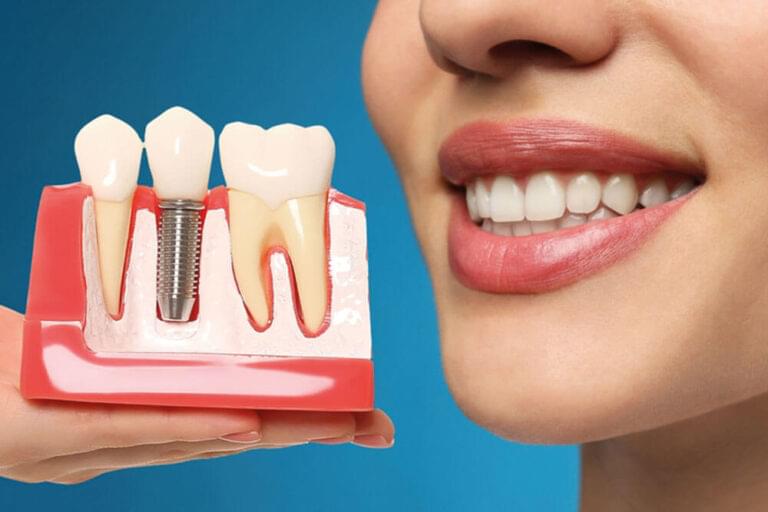Periodontal disease is a highly common infection of the periodontal tissues (gums and bone) that are responsible for supporting the teeth.
Bacteria that grow on the teeth near the gum line due to poor brushing and flossing practices cause these infections. In its earliest stages, gingivitis typically causes sore, swollen gums that may bleed easily. Allowed to progress, an advanced periodontal disease may set in causing pain, receding gums and pockets between the gums and teeth. Known as periodontitis, this type of gum/bone disease is the leading cause of tooth loss among American adults – even more so than decay.
Did you know?
A number of risk factors, aside from poor brushing and flossing habits, contribute to periodontal disease. This disease is a highly common infection of the gums and bone that support the teeth. Bacteria cause these infections by growing on the teeth near the gum line. Poor brushing and flossing practices allow this bacteria to thrive. In its earliest stage, periodontal disease is known as gingivitis. Gingivitis typically causes sore, swollen gums that may bleed easily. If untreated, it can progress into advanced periodontal disease. This stage, known as periodontitis, causes pain, receding gums, and pockets between the gums and teeth. Periodontitis is the leading cause of tooth loss among American adults, surpassing decay.
Frequently Asked Questions
Do I have periodontal disease?
You may have gingivitis or periodontitis if you are experiencing any of the symptoms listed above. However, the only way of knowing for sure whether you have an oral disease is via a professional dental exam. Keep in mind that you may have periodontal disease and be asymptomatic; so be sure to visit your dentist for a thorough exam and cleaning at least twice per year.
What will my periodontist do if I am diagnosed with periodontal disease?
Your dentist will determine your treatment based on whether you have gingivitis or periodontitis. They typically treat minor cases with a thorough cleaning and topical antibiotic. If, however, your periodontal tissues have begun to deteriorate and your gums have begun pulling away from your teeth, you may require a more complex treatment, such as flap surgery or bone and gum grafting.
Will I need to do anything to prevent periodontal disease from returning?
Yes. The condition can reoccur—especially if you do not make any changes to your brushing and flossing habits. By brushing after every meal, flossing once daily, avoiding tobacco, and getting frequent professional dental cleanings, you could help prevent it from returning in the future.










